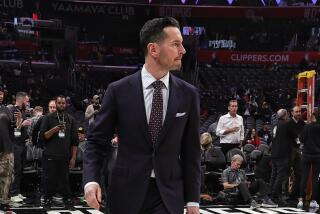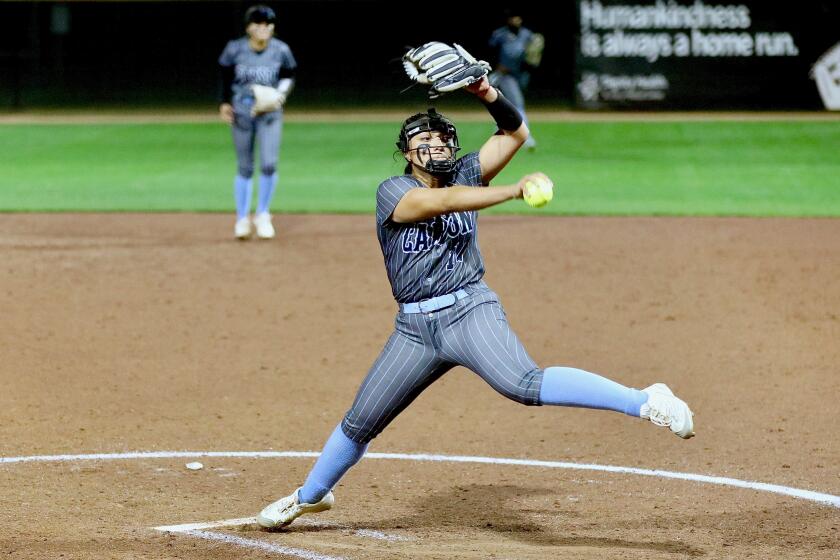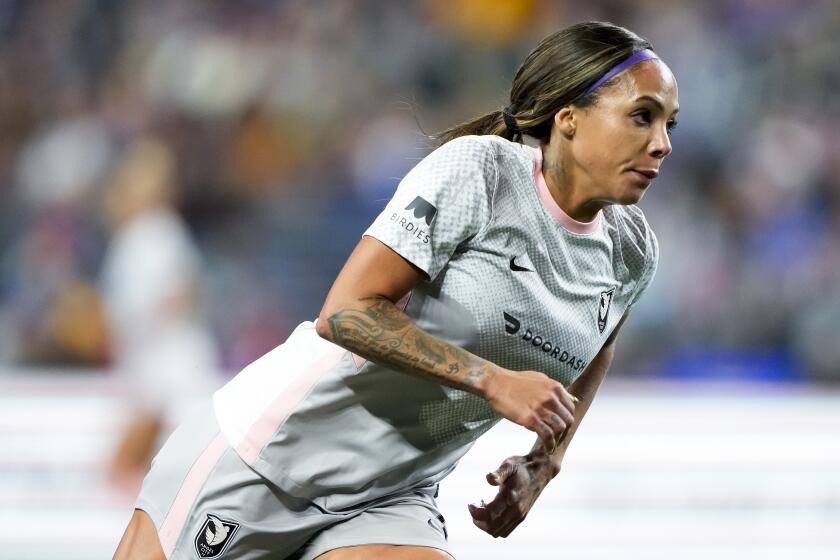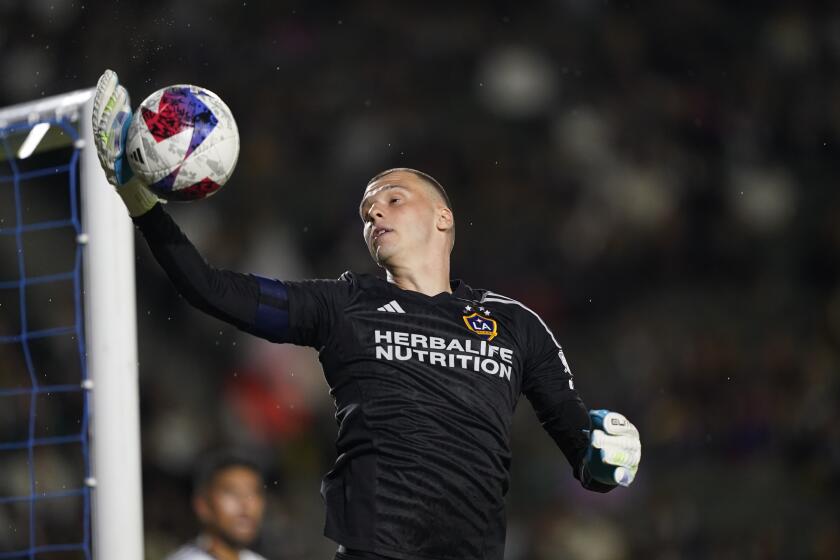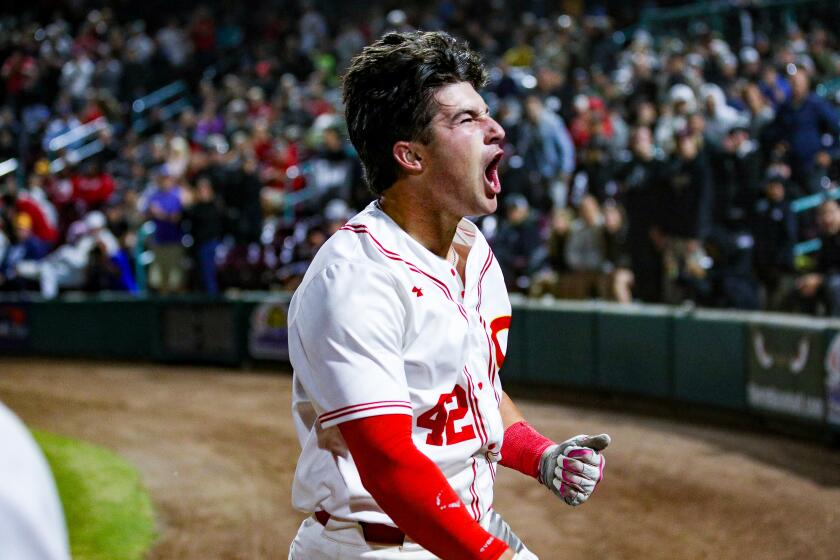Questions Linger After Manley’s Banishment
Several years ago, before he became vice president of the Baltimore Orioles, Calvin Hill was trying to help a group of nearly a dozen Cleveland Browns stop taking drugs. A sympathetic and understanding man, Hill said one day he got so exasperated in one of the private sessions with the players that he blew his stack.
“If you were my team, I’d get rid of all of you guys,” Hill told them.
One of the players responded: “Okay, but if you get rid of all of us, all you’ll do is draft some more (drug users) the next time.”
Hill said he thought long and hard about what the player told him.
“It made a lot of sense,” Hill said Wednesday. “Part of the problem is we live in a throw-away society, so if one player has a problem, we just get rid of him and get another. I guess I learned that if I were a coach, I’d have some sensitivity to the drug issue. It’s an ever-increasing problem that the professional leagues will continue to have to deal with.”
Last week, Washington Redskins defensive end Dexter Manley was suspended indefinitely for a third violation of the NFL’s pro leagues is the NBA’s. That league rewards a player who volunteers that he needs help: twice a player can volunteer for treatment without being banned. The first time he is suspended with pay; the second time, suspended without pay. Both times the team pays for the treatment and the player is reinstated when the treatment ends.
Testing is done only when an independent expert determines there is reasonable cause. Then the player is tested four times in six weeks. If he fails one of the random tests, he is banned for life, but can apply for reinstatement after two years. If he refuses to be tested, he is banned for life.
Ex-Redskins free safety Mark Murphy, a former official of the NFL Players Association, said the NBA policy is a good guideline from which to work.
“What I would do is concentrate on players when they first start their careers,” Murphy said. “I’d start at the scouting combines and really focus on career counseling for their lives after football. I’d encourage them to do other things. I always thought the drug problems were worse in the offseason. I’d like to see the league push summer internships or programs to get them back to school. But the NFL fears that would take them away from football.”
Hill would like to see all teams institute programs like the Browns’ Inner Circle substance-abuse program, which he oversaw from 1982-86. Confidentiality is vitally important; Hill said for a year, even the Cleveland beat reporters thought he was there as an offensive consultant.
If a team doesn’t start its own program, it should hire someone to help players in their after-care and rehabilitation, Hill said.
“You have a player like Dexter Manley worth half a million dollars, and then he’s gone,” Hill said. “It might be wise on the team’s part to hire someone internally to monitor the after-care.”
Hill also would “mandate” that every owner and head coach be required to spend a day or two at a treatment center.
In March 1986, the NFLPA proposed that a confidential and independently run drug program be instituted by the league. The first positive test would be met with rehabilitation and after-care from an independent source. The second would be punished by a fine that would be 1-16th of a player’s salary. The third offense would be a permanent ban. This program was not instituted.
“The penalties now are not so much for the addict as a deterrent for other players,” Murphy said. “What is the magic of 30 days? They treat it like a knee injury, that it will be over in 30 days. This is a lifetime problem.”
A 30-day suspension means different things for different athletes. Manley received 30 days during training camp in 1988, which amounted to losing next to no money and missing out on the least-liked month of the season. Linebacker Lawrence Taylor of the New York Giants also was punished for a second time that year, but he missed four regular-season games and lost one-fourth of his salary.
The difference between Manley’s case and Taylor’s?
The date they were tested and their urinalysis was evaluated.
“To me, that’s a mistake the league made,” Murphy said. “It was supposed to be the exact same penalty, but it wasn’t.”
If the NFL plans to make changes in its policy, it won’t say so publicly.
“I’m comfortable with the policy,” Tagliabue said through Browne. “It’s a good balance of education, testing, counseling and discipline. It’s a constructive and realistic policy.”
More to Read
Get our high school sports newsletter
Prep Rally is devoted to the SoCal high school sports experience, bringing you scores, stories and a behind-the-scenes look at what makes prep sports so popular.
You may occasionally receive promotional content from the Los Angeles Times.


